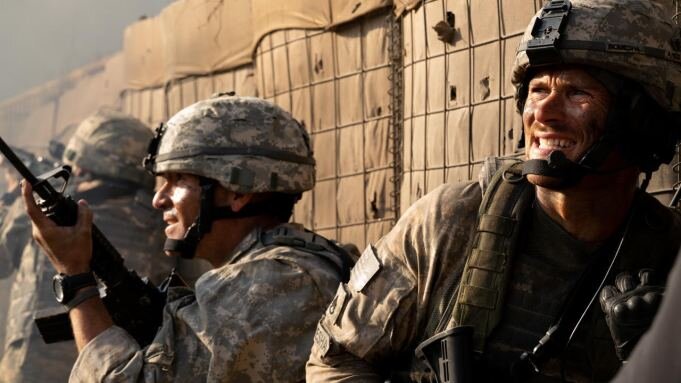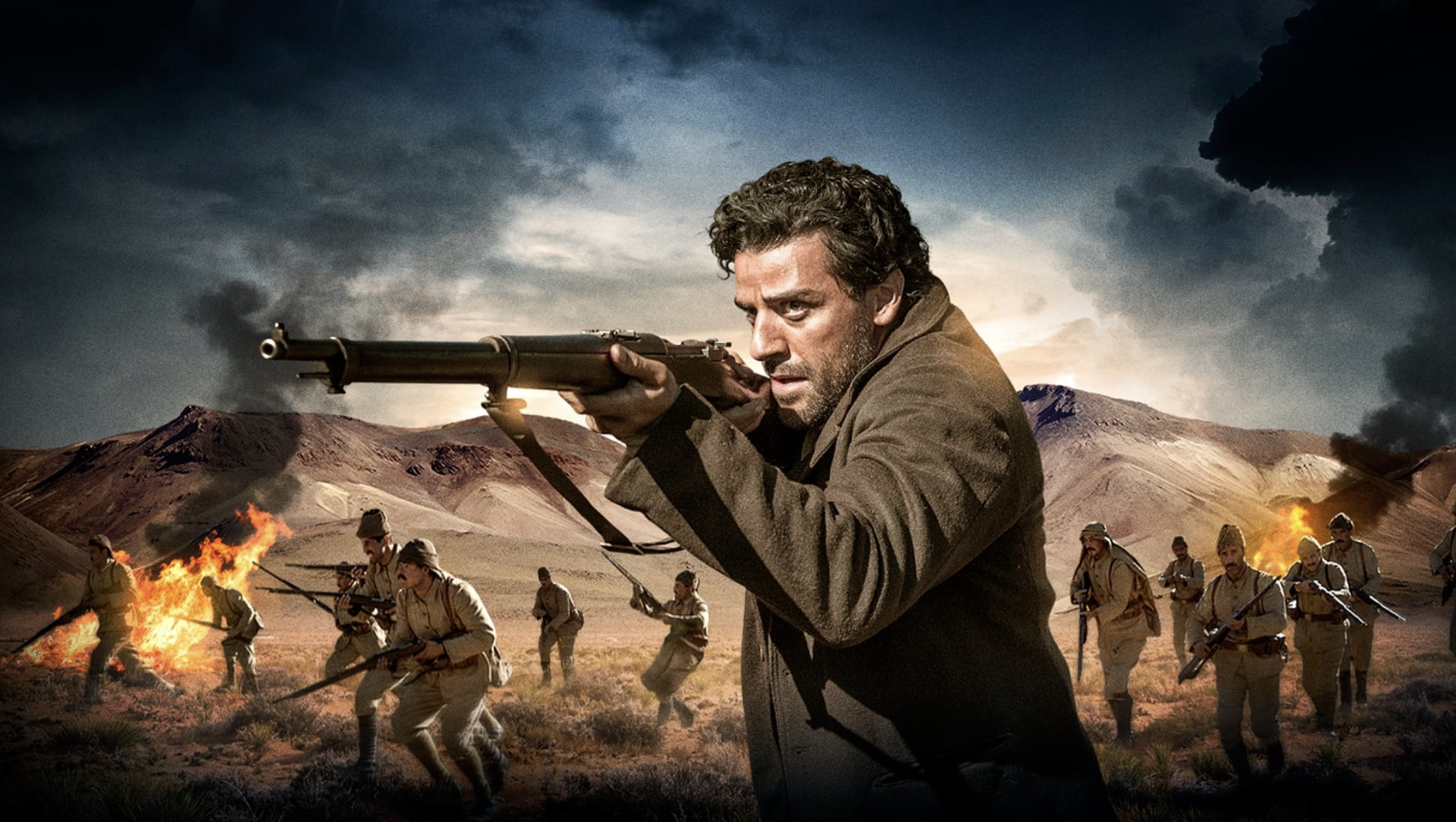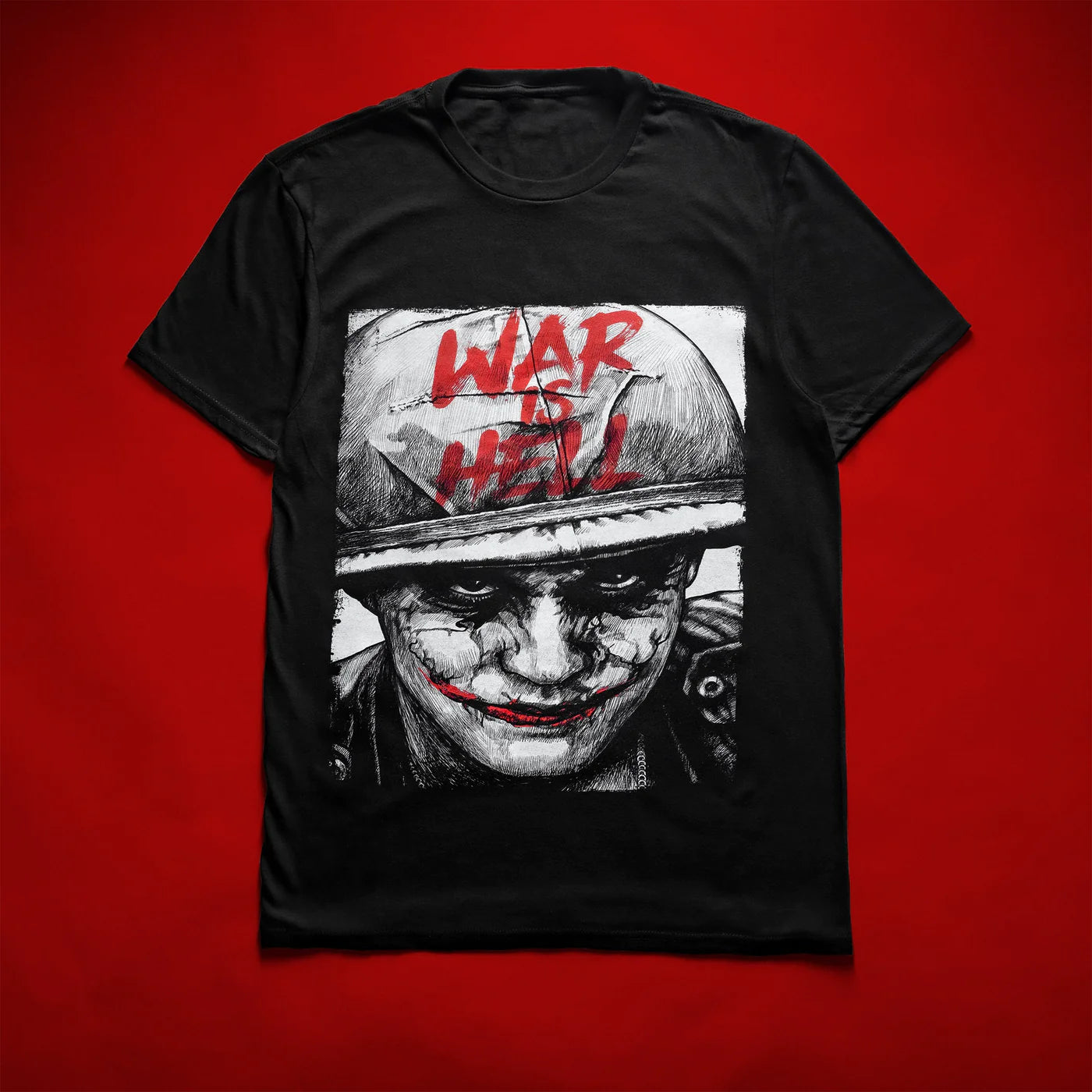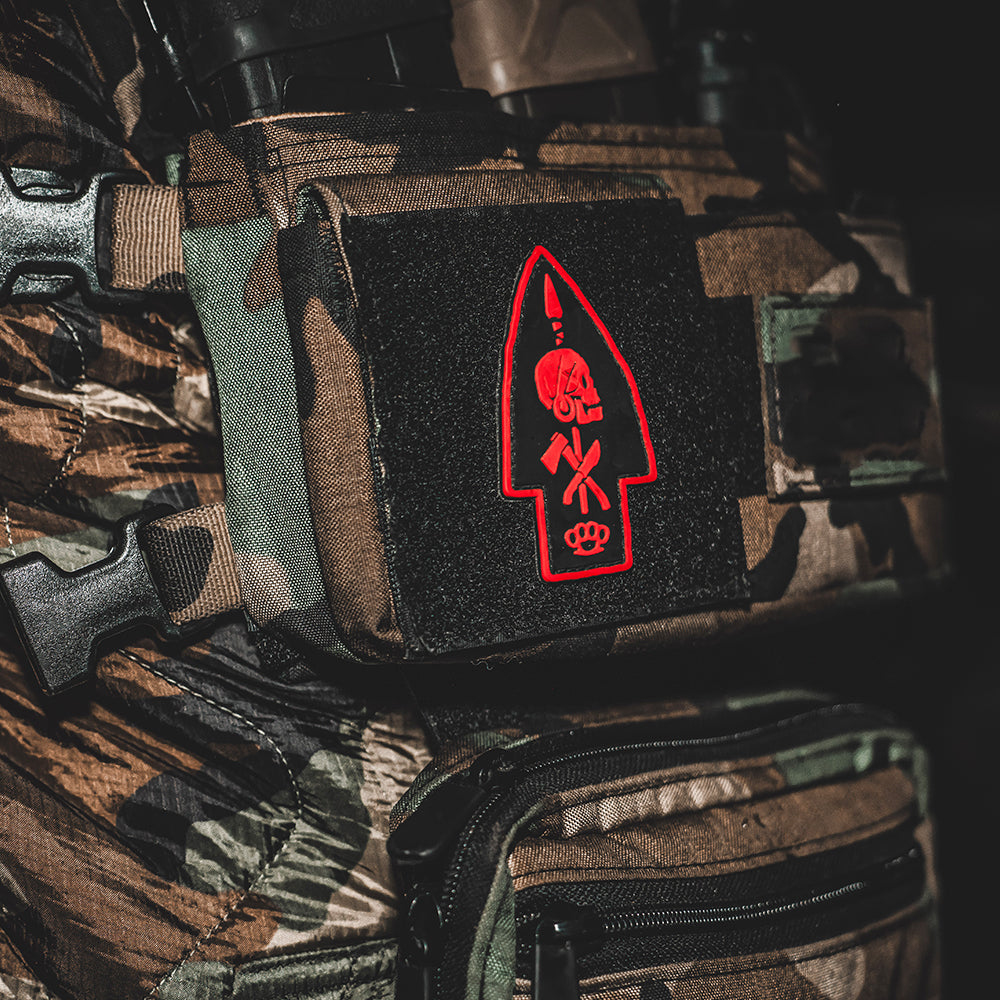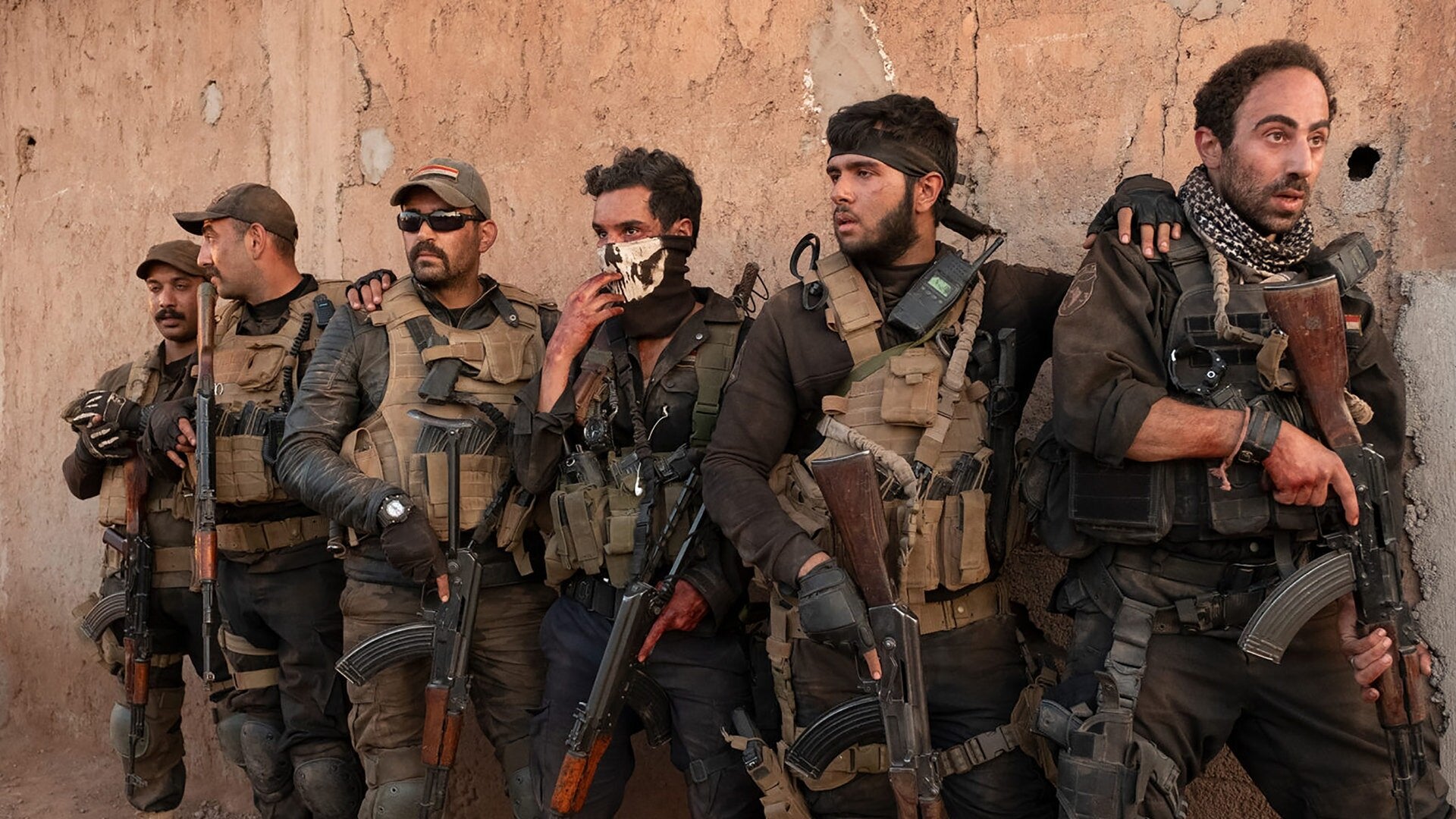
Mosul: Movie Review

Even though we are a year into our two-week lockdown and I am scraping the bottom of the streaming barrel, I am still leery of war films of the Netflix type and I go out of my way to avoid them. Netflix war movies just seem so contrived and to sit firmly in the war as porn cash cow camp. Mosul, however, is not one of those movies.
I am not going to bore you with the typical movie review facts like director, release date, etc. Because, frankly, who cares? What I want to tell you about this film—without spoilers—is that we should watch it. The only relevant thing you need to know is that Mosul follows a team of Nineveh SWAT members on a mission through Mosul in the closing days of the battle. Side note: Nineveh SWAT put in so much work against Daesh that Daesh would execute SWAT members on the spot. The movie includes this bit of info for us.
Mosul is interesting because we aren’t in it. By we, I mean us, the Americans, the American military. The film isn’t even in English—it’s in Arabic. And there are no Americans in the film—not even super secret squirrel advisors. Americans get mentioned in passing as the ones the Nineveh SWAT members and their families used to throw rocks at or fight side by side with. America is the place Iraqis emigrated to after serving with us, or to escape Daesh. But that’s it. We are a footnote. We are not the stars, the heroes, or the villains. The heroes are the Iraqis.
Even then, though, as we think about the word hero and all that means to us, one of the things Mosul does right is it doesn’t attempt to give some heroic platitude about war and freedom. Mosul doesn’t give us the grand strategy to retake the city and kill every last Daesh fighter (read that in a deep voice) with a cool soundtrack to manipulate viewer emotions and remind us that good is good and bad is bad and good triumphs over evil. Mosul lets us see the battle as it is. Gritty. Dusty. Brutal. We see [plenty of] dead bodies and dirty bloody children burying their parents. We see people who have lost everything. And we see a team of guys moving through a city, their city, to reclaim what is theirs. I know, I know—that last sentence is vague, but again I don’t want to spoil the movie.
I will say that the team’s mission is kept secret, and the reference to this secret mission a couple of times does undercut tension some and there are some heavy-handed moments of exposition that made me cringe as a writer and a writing teacher. And, yes, some of the SWAT team members are a little flat as far as characters go, but what the film does right outweighs this for me.
So what does Mosul get right in my opinion? Mosul gives the viewer the unexpected. The film opens on a gunfight between Iraqi Police and Daesh and the IPs are catching some serious hell. One of the IPs is a young boy who gets recruited into SWAT. Cool. So this is going to be about the innocence of youth blah, blah, blah, right? No. Not really. That character, Kawa, isn’t some bright-eyed teen who is stripped of his innocence after seeing the horrors of war. He lived under war with and for us, and war with Daesh. Innocence be damned.
And Daesh? There are no Daesh characters per se. Daesh fighters are nameless, sometimes faceless, entities. Devices if you will. No Daesh fighter gets a monologue or explains the plan for world domination. They kill and get killed. Nothing more, nothing less.
Here is another thing that was unexpected: Major Jasem—one of the film’s leads and group commander—police called trash. Jasem picking up trash stood out to me because I remember being told to police call our shit every time we moved while looking at the tons of trash left on the sides of roads, in alleys, everywhere around me and thinking to myself, “what?”.
But Jasem’s police calling isn’t a weird flex or even an attempt to keep with military discipline. Jasem picking up trash is a subtle moment of hope and decency without some stupid scripted line telling me that. Mosul, such as it was in 2017, was still his home and Iraq was still his country and he wanted to clean it up in any way he could—whether that was picking up trash or schwacking Daesh. Major Jasem himself was a solid character by the way. He could go from police calling trash, to being tender and kind to brutal and merciless in moments. He is a complex character in a complex world, and I dig it.
My one gripe is this: Mosul is a Hollywood movie. How was Hollywood able to get the subtleties and nuances right, cut all the bullshit moto lines in this movie, but still jacks it up pretty much any other time they make a regular American war film? But I digress.
If you haven’t seen Mosul, give it a go.
Written By Beelz
3/8/21

